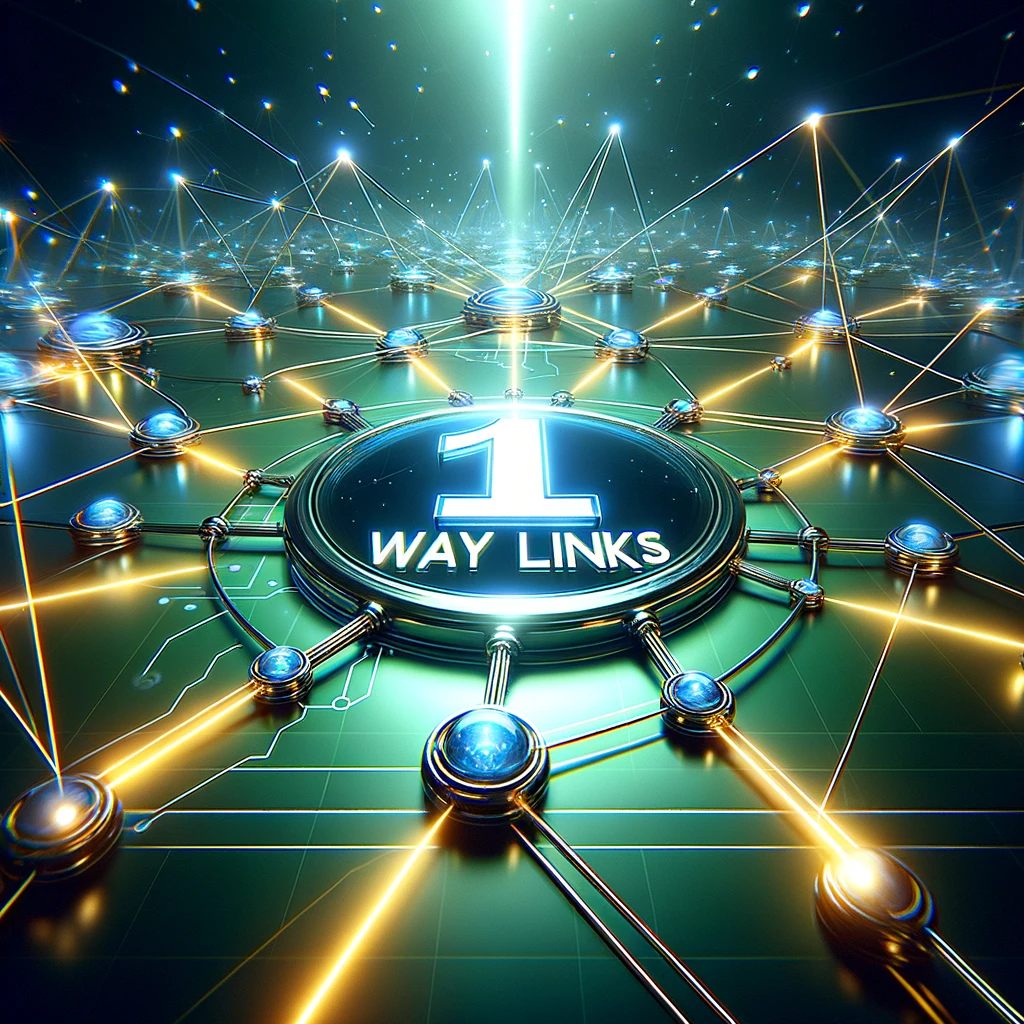In today’s digital landscape, a strong online presence is crucial for local businesses to thrive. And when it comes to improving search engine rankings, link building remains one of the most effective strategies. But like many other aspects of SEO, link building has evolved over the years. Gone are the days of simply spamming directories or purchasing links. Now, it’s all about quality over quantity, building genuine relationships, and providing valuable content. In this article, we will explore the evolution of link building in local SEO and discuss the strategies that can help your business succeed in the competitive online world. So buckle up and get ready to elevate your link building game!

The Early Days of Link Building
Search Engine Algorithm Updates
In the early days of link building, search engine algorithms were relatively simple and heavily relied on the quantity of links pointing to a website to determine its authority and relevance. This led to a practice called “link farming,” where websites would create numerous low-quality links in an attempt to manipulate search engine rankings. However, as search engines became more sophisticated, they started to update their algorithms to prioritize the quality of links over their quantity.
Importance of Directory Listings
During this time, directory listings played a crucial role in link building. These directories acted as online repositories for businesses, categorizing them based on their industry or location. By submitting their website to reputable directories, businesses could gain valuable backlinks that would signal to search engines the relevance and credibility of their website. Directory listings also helped increase a business’s visibility to potential customers who were actively searching for products or services within their niche.
The Rise of Article Directories
Another significant development in the early days of link building was the emergence of article directories. These platforms allowed individuals and businesses to submit articles on various topics, creating an opportunity for them to include links back to their own website within the content. This practice not only helped businesses generate backlinks but also increased their online visibility and brand recognition. However, as search engines continued to evolve, they started to devalue the links coming from article directories, leading to a decline in their effectiveness.
Google’s Penguin Update
Introduction of Penguin Algorithm
In 2012, Google introduced its Penguin algorithm update, aiming to combat manipulative link building practices and improve the quality of search results. The Penguin algorithm targeted websites that engaged in unnatural link building activities, such as buying links, participating in link schemes, or using automated link-building software. As a result, websites that violated these guidelines suffered severe penalties, including a significant drop in search engine rankings.
Penalties for Unnatural Link Building
With the introduction of the Penguin algorithm, the consequences for engaging in unnatural link building practices became more severe. Google started penalizing websites by devaluing spammy links and sometimes even removing them altogether. Websites that relied heavily on manipulative link building techniques saw their organic traffic plummet, and their online reputation suffer.
Shift towards Quality Backlinks
The Penguin update marked a turning point in the link building landscape, as search engines began to prioritize the quality of backlinks rather than the quantity. Websites that focused on acquiring high-quality, relevant, and authoritative links saw their search rankings improve. This shift encouraged link builders to place greater emphasis on building meaningful relationships with other webmasters, creating valuable content, and earning genuine backlinks naturally.
The Role of Citations in Local SEO
Definition and Importance of Citations
Citations in local SEO refer to mentions of a business’s name, address, and phone number (NAP) on other websites, regardless of whether these mentions include a link. Citations function as a crucial ranking factor for local businesses, signaling to search engines the legitimacy and prominence of a business within a specific location. The more consistent and accurate the citations across various online platforms, the higher the chances of the business ranking well in local search results.
Local Business Directories
To optimize citations in local SEO, businesses need to ensure that their NAP information is up to date and consistent across various local business directories. These directories, such as Yelp, Yellow Pages, and Google My Business, act as valuable sources of local information for both search engines and users. By ensuring consistent and accurate citations, businesses can improve their visibility in local search results and increase their chances of attracting relevant customers.
NAP Consistency and Accuracy
Maintaining consistent and accurate NAP information across different online platforms is essential for local businesses. Inconsistent or inaccurate information can confuse search engines and users, leading to a negative impact on search rankings and customer trust. Therefore, businesses should regularly audit their citations, ensuring that their NAP information is standardized, up to date, and matches their official business details.
Guest Blogging and Influencer Outreach
Advantages of Guest Blogging
Guest blogging involves writing and publishing articles on other websites as a guest author. This strategy allows businesses to gain exposure to a new audience, enhance their brand visibility, and establish themselves as experts in their industry. Additionally, guest blogging provides an opportunity to include backlinks to the company’s website within the author bio or content, generating referral traffic and improving search engine rankings.
Building Relationships with Influencers
Influencer outreach is a technique that involves partnering with influential individuals or organizations in a particular industry to promote products, services, or content. By collaborating with influencers, businesses can tap into their existing audience, gain credibility, and nurture relationships that may lead to valuable backlinks. Influencer partnerships can take the form of sponsored content, guest posting, or social media collaborations.
The Power of Social Sharing
In addition to guest blogging and influencer outreach, businesses can leverage the power of social sharing to amplify the reach of their content and generate backlinks. When users find valuable, engaging content, they are more likely to share it with their network on social media platforms. This social sharing not only drives referral traffic to the business’s website but also increases the likelihood of other websites linking to the shared content, thereby boosting its search engine visibility.

Link Building in the Age of Content Marketing
Quality Content Creation
As search engines became more sophisticated, they started rewarding websites that produced high-quality, valuable content. Link building shifted from solely focusing on acquiring external links to creating content that naturally attracted links. By producing in-depth articles, informative guides, engaging videos, and other forms of content, businesses could establish themselves as trusted authorities in their niche and attract organic backlinks from other websites.
Link Earning through Content
The age of content marketing brought about a shift from active link building to link earning. Instead of actively seeking backlinks, businesses focused on creating valuable content that naturally attracted links from other websites. By producing content that solved problems, answered questions, or entertained audiences, businesses could increase their chances of earning organic backlinks from reputable sources. This approach not only improved search engine rankings but also enhanced their overall online reputation.
The Impact of Social Signals
In addition to producing high-quality content, social signals started playing a more significant role in link building and SEO rankings. When users shared, liked, or commented on a piece of content, it signaled to search engines that the content was valuable and relevant. As a result, search engines began factoring social signals into their algorithms, influencing search rankings. Businesses started leveraging social media platforms to distribute their content, engage with their audience, and increase the visibility of their brand.
The Influence of Online Reviews
Google My Business
Online reviews, particularly those on Google My Business, gained significant importance in local SEO. Google My Business provides a platform for businesses to manage their online presence and engage with customers. Positive reviews not only increase a business’s credibility and trustworthiness but also contribute to its search visibility. Google factors in the quality and quantity of reviews when determining local search rankings, making it essential for businesses to actively manage their online reputation.
Local Review Websites
Apart from Google My Business, various local review websites like Yelp, TripAdvisor, and Angie’s List play a crucial role in influencing consumer decisions and ranking businesses in local search results. These websites provide a platform for customers to share their experiences, leave reviews, and rate businesses. By encouraging customers to leave honest reviews and responding to them, businesses can improve their online reputation, attract new customers, and enhance their local SEO efforts.
Link Building through Positive Reviews
Positive online reviews also contribute to link building efforts. When businesses consistently provide excellent products, services, or experiences, customers are more likely to share their positive experiences on their websites, blogs, or social media profiles. These organic reviews act as powerful endorsements, driving traffic to the business’s website and potentially generating backlinks from other websites. As a result, businesses should actively encourage satisfied customers to leave reviews and capitalize on the opportunity to earn valuable backlinks.

The Emergence of Local Link Building
Local Sponsorships and Partnerships
Local link building focuses on acquiring backlinks from websites within a specific geographic area. One effective strategy is to sponsor local events or partner with other businesses in the community. By doing so, businesses can earn genuine backlinks from event websites, local organizations, and partner websites, enhancing their local SEO presence while building relationships with other local businesses.
Community Involvement and Events
Community involvement is another powerful way to earn local backlinks. By actively participating in community events, charities, or local organizations, businesses gain exposure and build positive relationships. These relationships can lead to opportunities for backlinks from community websites, event listings, or local news sources. Additionally, community involvement helps businesses establish themselves as trusted resources within their local area, further boosting their visibility and credibility.
Local Resource Pages
Many local websites, blogs, or directories have dedicated resource pages that provide information about local businesses, attractions, or services. Businesses can reach out to these website owners and request inclusion in their resource pages. By having their business listed as a valuable resource, businesses can secure backlinks that not only improve search rankings but also drive targeted traffic from users actively seeking local information.
The Future of Link Building in Local SEO
User Experience and Engagement
As search engine algorithms continue to evolve, user experience and engagement metrics are likely to play a more significant role in local SEO and link building. Search engines are increasingly prioritizing websites that provide a seamless user experience, load quickly, and offer valuable content. Businesses that prioritize user-centric design, mobile optimization, and engaging content will have a competitive advantage in acquiring organic backlinks and improving their local search rankings.
Linkless Mentions and Brand Recognition
As search engines become more sophisticated in understanding context and relevance, linkless mentions may gain more importance in local SEO. Linkless mentions refer to mentions of a business or brand without an accompanying hyperlink. Search engines can identify these mentions and attribute them to the overall authority and relevance of a business. Building a strong brand presence and establishing brand recognition can lead to linkless mentions from reputable sources, contributing to improved search visibility.
Voice Search and Natural Language Processing
With the rise of voice search and natural language processing, the future of link building in local SEO will likely involve optimizing for voice queries and conversational search. Businesses that adapt to these changes by incorporating long-tail keywords, structured data markup, and providing concise answers to frequently asked questions will have an advantage in capturing voice search traffic and earning valuable backlinks. Additionally, businesses can explore partnering with voice-assistant platforms or creating voice-optimized content to establish themselves as authorities in the voice search landscape.


